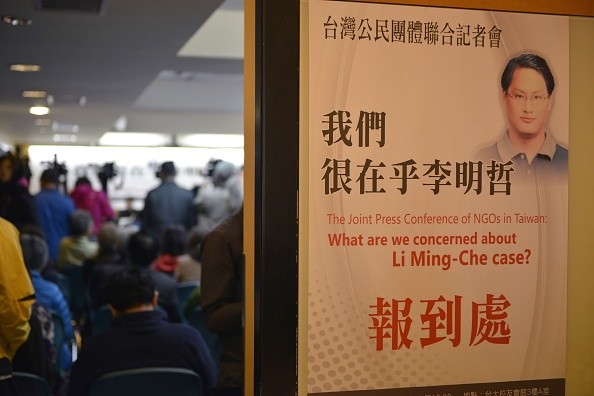On Wednesday, China warned outside groups not to seek interventions in the case of the detained activist. Such interventions would make the situation more complicated and would further damage China-Taiwan relations.
Lee Ming-che, a Taiwanese activist, has been detained since March 19 for allegedly “endangering China’s national security.”
According to Taiwan Affairs Office spokesman An Fengshan, China had forwarded the letters from Lee to his wife and his parents.
Lee’s wife, Lee Ching-yu, was banned from China on Monday. She sought to meet and “rescue” her husband but failed as her travel permit was canceled by China.
China asserts Taiwan as its territory and does not honor Taiwanese passports. Visitors from Taiwan must first obtain a Taiwan Compatriots Pass, a Beijing-issued document, prior entering the mainland.
In June, Beijing has severed its limited contacts with the Taiwanese government. But according to An, China had appointed a third party in Taiwan to “relate the relevant situation” and pass the letters to Lee’s family.
Lee’s wife said that he suffers from hypertension and that she has tried to ship his medications.
At a biweekly news conference, An said that Lee’s legal rights are protected by the government, without giving further details on the case.
An told reporters that interference from outside groups would “only render the issue even more complicated and harm the interests of the person concerned.”
“A few Taiwanese people and groups with ulterior motives who are seizing this opportunity to attack the mainland are doomed to failure. They will not achieve their goal of interfering in the work of relevant mainland departments in handling the case by law,” An added.
The TAO spokesperson also warned against “attempts by the Taiwan authorities to use the incident to attack the mainland” which “can only make the current, already extremely grim cross-strait relationship even worse.”
Taiwan’s Cabinet-level Mainland Affairs Council head Chang Hsiao-yueh said at a press conference on Tuesday that China’s decision to withhold information about Lee would “surely harm the feelings of the Taiwanese people.
“We are expressing our utmost disagreement toward China for refusing to respond to our inquiries and requests since the issue began,” said Chang.
China insists Taiwanese President Tsai Ing-wen to endorse the “One China” policy before it will reinstate contacts. The two parted in the midst of the 1949 civil war.
The case of the detained activist continues to strain the Taiwan-mainland relations.



























